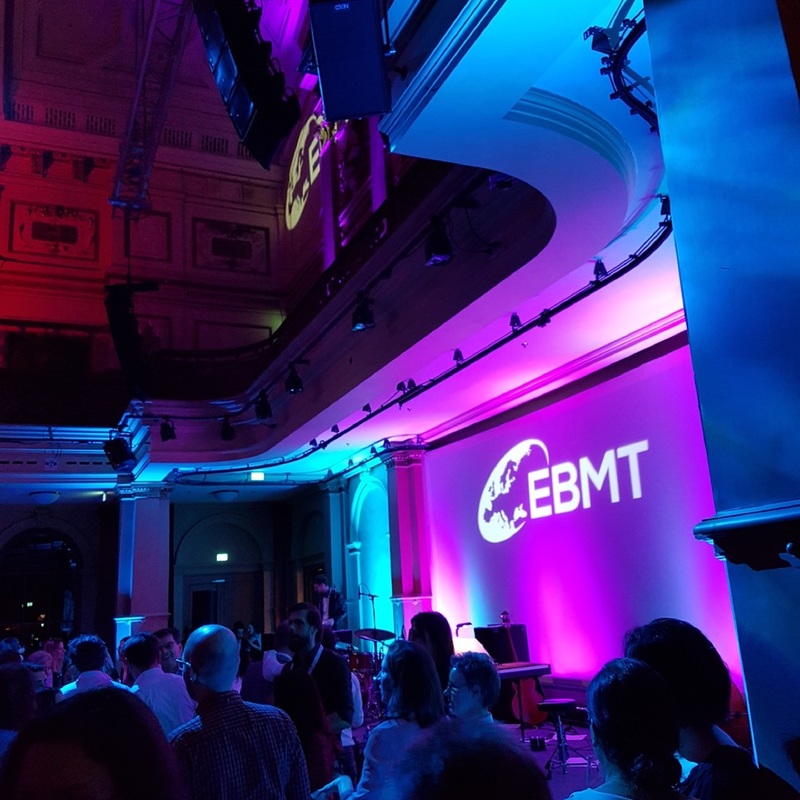Search
Immigration Policy in Malaysia and my eight horrendous Days in Detention
DOI: 10.17160/josha.6.8.595
I am a political scientist and in the course of my career as a lecturer and pro-democracy activist, I have traversed over 50 countries across different continents. Hence, I had taken the routine details of international travel for granted – until my traumatic experience in Malaysia where I was detained under extremely dehumanizing conditions for eight days in November 2017. My offense was that I failed to get a transit visa to go from one airport in the country to another. About the Author: Dr. Mike Omilusi is an Independent Democracy Monitor, Freelance Journalist, Development Worker, and University Teacher in Nigeria.
Bright minds for a better world! a wonderful evening at the Demetrios Award 2019!
DOI: 10.17160/josha.6.8.592
a wonderful evening at the Demetrios Award 2019! The International Academy of Sciences, Humanities, and Arts wants to promote open and interested young scientists and artists and encourage interdisciplinary exchange. To this end, it awards prizes in both categories every year and combines its artistic and scientific concerns at an event. This year, the Demetrios and Pythagoras Prizes were ceremoniously awarded on 6 July 2019 as part of a concert by the Swiss youth big band Swing Kids at the Kurhaus Bad Krozingen.
Unravelling the syndrome of age associated diseases 2: Targeting autoimmunity with anti-CD20 antibodies to reduce age-associated diseases
DOI: 10.17160/josha.6.8.591
The antibody Rituximab that was originally used to treat non-Hodgkin's lymphoma or chronic lymphocytic leukemia was found to be effective for all autoimmune diseases studied so far. This raises the question of whether successful treatment of autoimmune reactions, even at the subclinical level, can reduce the risk of cardiovascular disease, cancer, and other age-associated diseases. Animal experiments and initial clinical observations support this novel therapeutic strategy. However, due to the complex biological processes and the long-time required for clinical observations, it is challenging to produce clear evidence from randomized double-blinded studies. It will be crucial to prove in the near future, whether surrogate endpoints (e.g., elimination of autoreactive B cells) can accelerate the development of this strategy. The present preclinical evidence is convincing, but the path from a “promising anti-aging molecule” to “accepted drug” will be long and require further research.
Editorial Volume 6, Issue 7. The second awarding of the Demetrios Prize and its participants.
DOI: 10.17160/josha.6.7.590
The current issue of the Josha Journal is dominated by the awards ceremony on July 6, 2019. Eight Demetrios Prizes and three Pythagoras Prizes were presented by the International Academy of Sciences, Humanities, and Arts at a successful concert and literature evening. In addition to the prize money, the international prize winners will also be able to publish their qualification papers in the Journal. The theses published in the journal the last weeks are bachelor, master and doctoral theses by young scientists. The spectrum ranges from philosophy and cultural studies to machine learning and medical work. The Pythagoras prizes went to the youth big band "Swing Kids", the poetess Zazie-Charlotte Pfeiffer and the singer Marie Brendle. All of them presented their performances at the award ceremony.
The Psycho-Political Underpinnings of Presidential Speeches: President Buhari’s Three Selected Speeches to Countrymen
DOI: 10.17160/josha.6.7.588
Given the fact that presidential persuasion is a central feature of presidential power and leadership, this essay explores the persuasive strategies employed by President Buhari in three selected speeches. Although much research has been done on the rhetoric of presidents at crucial moments in Nigeria, most of these studies focused on international affairs or linguistic appraisal rather than domestic socio-political situations. Interestingly, many of the essays on this subject matter are vagaries from columnists and journalists with seemingly partisan disposition. The thrust of this essay, therefore, is premised on the hypothesis that the three speeches were meant to strike the psychological and political minds of the citizenry during the period under review.
DEMETRIOS PRIZE 2019! Optimizing T-Cell Culture in Microfluidic Devices
DOI: 10.17160/josha.6.7.587
One of the winners, german Julia Pinter, focused his research on the subject of Cancer. Cancer is the disease with the highest mortality worldwide, treated with the same standard approaches for decades. This conventional therapy strategies do not take the evolutionary development of cancer into consideration nor the role of the immune system in this process. Cancer has been shown to hide from the immune surveillance by establishing an immunosuppressive microenvironment. Furthermore, tumor cells are rarely recognized as pathogens by immune cells since they originate from self-material. As a result, there is a recent trend in cancer treatment to redirect the immune system to cancer specificity.
Demetrios Prize 2019: Machine Learning as an Adjunct to Medical Decision Making
DOI: 10.17160/josha.6.7.586
One of the winners, Nicolas Woitzik from Germany, evaluated in his thesis the textual clinical recommender system which represents a computerized clinical decision support system (CDSS). It analyses the patient’s discharge summaries with the help of information retrieval and natural language processing methods. It provides the user with a similar patient case out of a database to include this information into the user's decision-making process. We conducted an experiment to validate the correlation between the computed similarities by the new CDSS and the similarity judgment of medical experts, junior doctors, and medical students. Taken together, the retrieval system still needs improvements, either based on an improved retrieval algorithm or by additional features. However, it is likely that the performance of the system will improve the more discharge summaries a database contains like it was shown in this thesis.
Editorial Volume 6, Issue 6: Appreciating Arts, Science, and Humanities around the Globe
DOI: 10.17160/josha.6.6.580
After having celebrated our first 500K views in our Journal, we would like to thank all our readers and authors for their informative contribution and their interest in sharing knowledge with the world. As you may know, another way to share information with the World and connect with each other is our Demetrios Prizes every year. This month was all around this event and the awards of the winner who had submitted their works from many countries around the world.
A scientific galaxy lacking replications: on Ioannidis’ "In scientific method we don’t just trust or why replication has more value than discovery"
DOI: 10.17160/josha.6.7.579
In this article, I examine and outline a recent lecture at the US National Institutes of by Dr. Ioannidis. In his talk, he argues for the importance of reproducibility in science and emphasizes the immense value of replication over discovery. In his words, in most scientific disciplines, a discovery without replication is a boring nuisance. Also at the conference, Dr. Ioannidis proposes twelve families of solutions to increase the proportion of real research results.
VOTERS INDUCEMENT TECHNIQUES AND THE ELECTORAL PROCESS IN NIGERIA: A CASE OF THE 2017 OSUN WEST SENATORIAL BYE-ELECTION
DOI: 10.17160/josha.6.7.576
It is regarded that elections are the litmus test for a true democratic political system, since in democracies, the government derives its legitimacy from the people, and going by this democracy means nothing if the people's will are bought or manoeuvred by inducement. It is an undeniable fact that elections in the country amongst other factors determine on who gets what, when and how, as the political office seekers in the process tend to adopt techniques and strategies to gain the heart of voters. Using primary and secondary data, the paper was anchored on the social exchange theory to examine the nature and the extent of inducement strategies on the outcome of the Osun West senatorial bye election. The study reveals that the nature of inducement took the form of vote-buying and the sharing of other material incentives which influenced the outcome of the bye-election.



.jpg?1564746868)



.jpg?1562059844)

